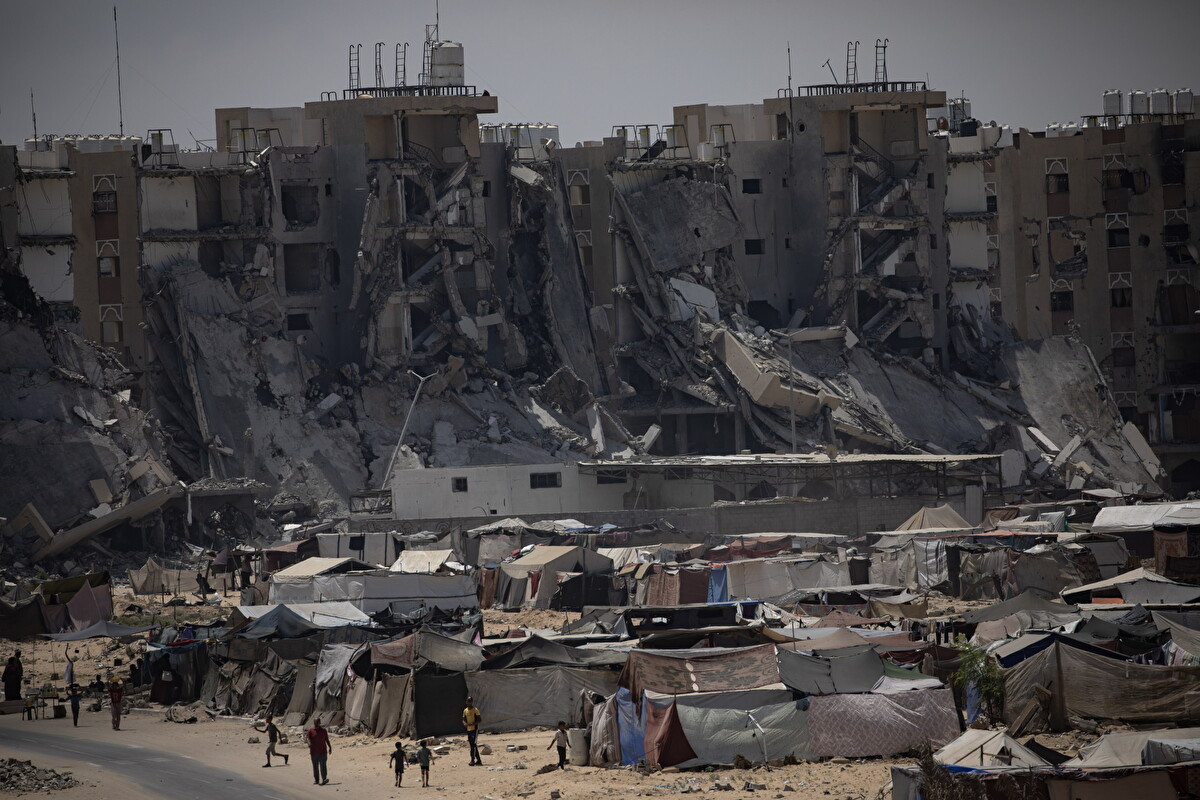As the Democratic National Convention (DNC) prepares to convene in Chicago this week, the city is bracing for a wave of protests expected to draw tens of thousands of demonstrators. These protests are poised to capture the nation’s attention as much as the political proceedings inside the United Center. With memories of the 1968 convention’s violent clashes still vivid, both city officials and protest organizers are keenly aware of the potential for conflict.
The focal point of the protests will be opposition to U.S. aid to Israel in light of the ongoing war in Gaza, which to date has claimed just over 40,000 thousand Palestinian lives as well as about 1,500 Israelis. This issue has united a broad coalition of over 200 organizations under the banner of the March on the DNC, which plans to hold large-scale demonstrations on Monday and Thursday, the days when Vice President Kamala Harris and other top Democrats are scheduled to speak. The coalition’s website brands President Biden as “Genocide Joe Biden,” accusing him of complicity in the deaths of Palestinians.

One of the most anticipated protests is the “Bodies Outside of Unjust Laws” march, which will kick off the week’s demonstrations on Sunday. This march, organized primarily by abortion rights and LGBTQ+ groups, will begin at Wacker Drive and Michigan Avenue and proceed down Michigan Avenue to Grant Park. The choice of route is symbolic, ending at the General John Logan statue, a site associated with the tumultuous protests of the 1968 DNC.
“We are united by a demand for bodily autonomy,” said Andy Thayer, one of the organizers of the march. Thayer emphasized that the issues of abortion rights, LGBTQ+ rights, and opposition to Israel’s actions in Gaza are deeply interconnected for the coalition.
On Monday, the March on the DNC will begin at noon in Union Park, with speeches planned before the march moves west along Washington Boulevard. Organizers expect this to be the largest protest of the week, with participants traveling from across the Midwest to join. The march is part of a coordinated effort by pro-Palestinian groups that have been active in Chicago for months.
“The majority of the people are going to be here for day one,” said Hatem Abudayyeh, one of the lead organizers. The coalition has planned meticulously for the event, training supporters in de-escalation tactics and organizing medics to accompany the march. Abudayyeh, who also represents the Chicago Coalition for Justice in Palestine, has been a vocal critic of the city’s handling of protest permits, accusing officials of creating unnecessary obstacles.
“We are protesting every day because the world is going to be watching,” Abudayyeh said. “We are trying to stop a genocide. This is the Vietnam War of our generation.”

EPA/HAITHAM IMAD
The Poor People’s Army, a Philadelphia-based protest group, also plans to march on Monday, starting at 4 p.m. in Humboldt Park. This group, which has a long history of demonstrating at major political conventions, was granted a permit by default after the city failed to respond to their application in time. The route they were assigned takes them perilously close to the United Center’s security perimeter.
Wednesday will see the Chicago Coalition for Justice in Palestine take to the streets once again, this time without a permit. The group had originally planned to apply for one but decided against it after police forcibly cleared a protest encampment at DePaul University. Abudayyeh, who also speaks for this coalition, expressed hope that the march will be peaceful but did not rule out the possibility of spontaneous route changes, which could lead to confrontations with law enforcement.
In response to the expected protests, Chicago Police Superintendent Larry Snelling has emphasized the department’s commitment to “constitutional policing” but warned that officers will intervene if demonstrations become violent. “We will not allow people to come here and destroy the city,” Snelling said earlier this week.
To manage the expected crowds, Chicago police will be supported by 500 additional officers, including some from suburban departments and the Illinois State Police. Federal and state officials have also drawn up a sprawling security plan to maintain order.
Despite the extensive preparations, concerns remain about the potential for unrest. The memory of the 1968 DNC looms large, where anti-war protests escalated into violent confrontations with police, leading to widespread arrests and injuries. Historian Sean Wilentz, who witnessed the events of 1968 firsthand, noted the similarities between then and now but cautioned against drawing too close a parallel.
“1968 was a very different time than anything I’ve ever seen in this country,” Wilentz said. “There’s certain similarities between this year and that year in the sense that you have events happening very quickly and they seem traumatic. But nothing in comparison to what 1968 felt like.”
The Israeli American Council, one of the few pro-Israel groups planning to demonstrate, will hold a rally at Park 578 on Wednesday to show support for Israel. The group struggled to obtain a permit but was eventually granted one after appealing to city officials. They also plan to erect a “Hostage Square” exhibition on Tuesday, aimed at raising awareness of Israeli hostages held by Hamas.
As the DNC unfolds, the eyes of the nation will not only be on the speeches inside the United Center but also on the streets of Chicago, where the legacy of 1968 hangs in the balance. City officials and protest organizers alike are hoping to avoid a repeat of that year’s violence, but with so many groups planning to make their voices heard, the outcome remains uncertain.












